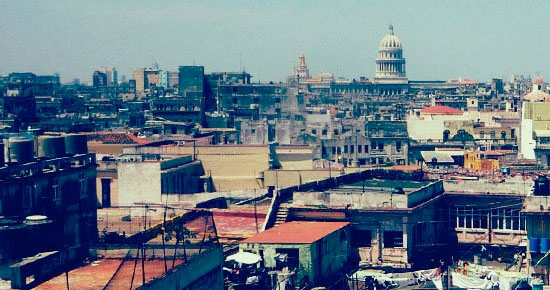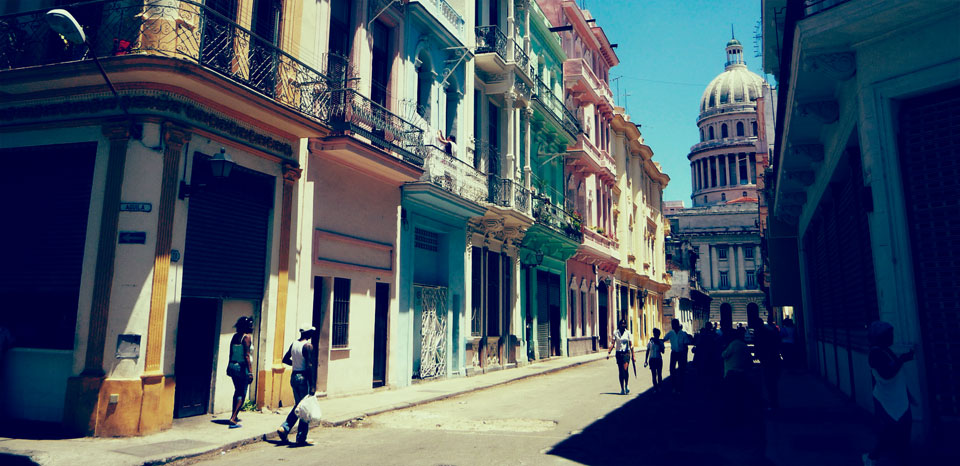Havana
Havana is one of the most beautiful cities in the Caribbean and is known as Pearl of the Caribbean. The historic old town has been declared a UNESCO World Heritage Site.
The government of Cuba is very keen to preserve and renovate the city and therefore offers one of the most beautiful old towns in American colonial style. The most important districts are Habana Vieja (the old town), Vedado, Miramar, Centro Habana and the Malecon.
Havana is a tropical beauty and combines the best of Spain, Africa and the Antilles architecture.
Havana is a true open-air museum and life pulsates throughout the streets. Architecturally you get your money's worth and you will feel nostalgic as you view the sights of the iconic old American cars. The countless Salsa-Bands in the restaurants let the music sound spill into the streets of the old town.
Life in Cuba
In Cuba, many civil and political rights, especially freedom of expression, freedom of the press, freedom of assembly and movement, are still severely restricted. Many policemen on the streets and a government monitoring system are supposed to prevent loud discontent and criticism of the system.
On the other hand, social rights are very well implemented. School education and medical care are free. At the end of January 2006, Cuba received a certificate from the UN World Food Program, confirming that it was the only country in Latin America and the Caribbean without any children who were not well fed.
Cuba is also a safe country to travel.
In Cuba there is a type of points system, called Libreta, which allows for the rationed purchase of subsidized goods, mainly foodstuffs. However, these are only sufficient funds for about 10 to 14 days of each month. The rest of the daily needs must be bought on the free market (CUP) or even in foreign currency shops (CUC), but this is extremely difficult with an average income of approx. 15 Euro per month.
Many items of daily necessity and almost all high-value products, such as electronic devices, are only available against the US dollar-denominated Peso Convertible (CUC). Cubans who do not have relatives abroad, who regularly support them by sending money, can hardly afford to live.
Over the years, the Cubans have learned to organise themselves in an astonishing manner within these circumstances to survive. You will be amazed at their improvisational talents and how they keep their pride in all the adverse external circumstances and exude an often-enviable vitality and cordiality.
Through the large number of tourists who have been traveling to Cuba since 1990 some Cubans are able to earn small amounts of extra-income through services offered to tourists in the big cities. So it can happen that will find that your taxi driver is in fact a doctor or lawyer, because just the tip for the journey can add up to more money earned than the meagre state basic income.

